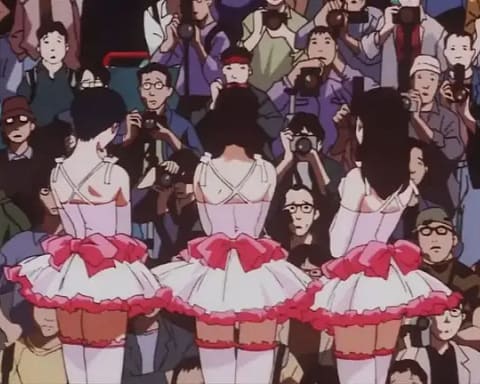In a surprising revelation, I recently discovered a fascinating connection between someone’s career and my own interests. It made me realize how small the world truly is. The person in question is an award-winning composer who has composed music for both video games and anime, including one of my all-time favorite series, Cowboy Bebop. This revelation has left me in awe of their talent and the impact their music has had on my life.

Growing up during the golden age of video games, I spent countless hours playing co-op games with my best friend. One game that stood out to us was NOBUNAGA’S AMBITION, a historical military strategy game released in 1989 by a company called KOEI. Little did I know at the time that the composer behind the music of this game would go on to create the iconic theme song of Cowboy Bebop.
My friend and I spent an entire summer engrossed in NOBUNAGA’S AMBITION, bonding over our shared love for gaming and discussing various topics between turns. Those memories hold a special place in my heart, and the music from that game instantly transports me back to those carefree days.
The composer responsible for this nostalgic music is none other than Yoko Kanno. It’s mind-blowing to think that one person could create music for multiple intellectual properties that hold such significance in my life. Yoko Kanno’s talent and versatility as a composer are truly remarkable.
Born in Sendai, Japan in 1963, Yoko Kanno had a strict upbringing that limited her exposure to movies and television. However, she was allowed to explore classical music and began studying the keyboard at a young age. While in college, her passion for music expanded as she joined a band and discovered various genres like folk, pop, jazz, rock, and metal.
Yoko Kanno’s breakthrough in her career came when she was offered a job by KOEI to compose the soundtrack for ROMANCE OF THE THREE KINGDOMS, a historically based military strategy game. The success of this game propelled her career forward, and she went on to compose music for sixteen video games, primarily within KOEI’s portfolio of historically based strategy games.
However, Yoko Kanno’s contributions extend far beyond video games. She has composed music for numerous anime series, movies, TV shows, and commercials. Her work spans nearly forty anime projects over the course of thirty years. She has received multiple nominations and awards for her exceptional compositions, including the Annie Award and International Film Music Critics Award.
Some notable highlights from Yoko Kanno’s extensive anime discography include her work on PORCO ROSSO, MACROSS PLUS, COWBOY BEBOP, THE VISION OF ESCAFLOWNE, and JIN-ROH. Each of these projects showcases her ability to create captivating and memorable music that enhances the storytelling and atmosphere of the anime.
In addition to her solo work, Yoko Kanno has collaborated with various artists and bands. One notable collaboration is with the band called the Seatbelts, known for their contributions to Cowboy Bebop’s soundtrack. Yoko Kanno’s talents as an arranger, conductor, and producer have allowed her to work with renowned orchestras and create music for major companies like Microsoft, Sony, Google, Nintendo, and Toyota.
It is difficult to compare Yoko Kanno to anyone else in the industry. Her ability to seamlessly blend different genres and create music that resonates with audiences is truly exceptional. She has left an indelible mark on both the gaming and anime worlds.
In conclusion, Yoko Kanno’s contributions to the world of music are nothing short of extraordinary. Her compositions have touched the hearts of many and have become an integral part of beloved video games and anime series. I feel honored to have had the opportunity to write about her remarkable career and talent.




This short comment reflects the author’s personal realization about the impact of Yoko Kanno’s career in tying together various aspects that were previously unknown to them.